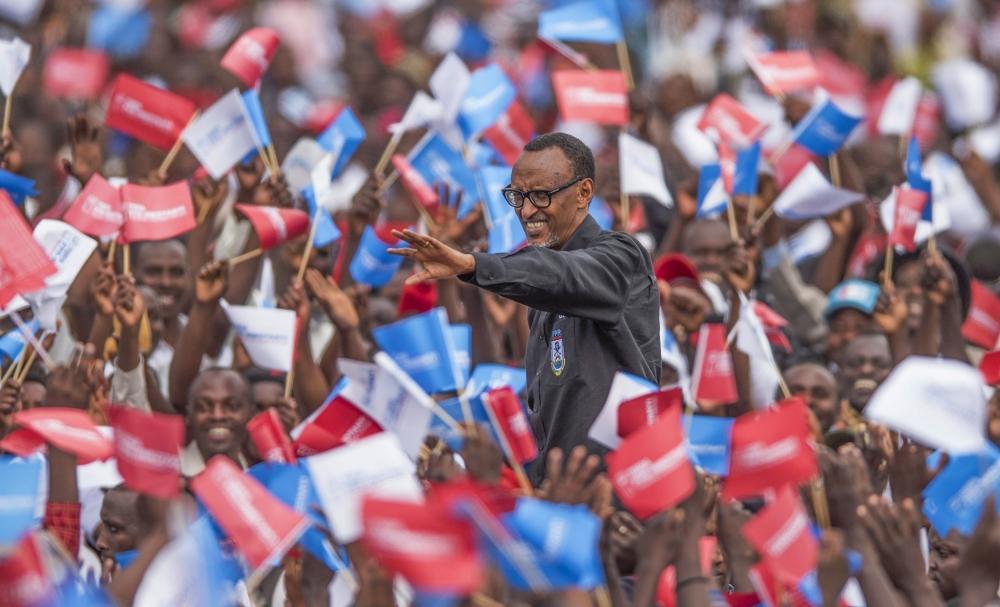Shyaka Kanuma
Africa-Press – Rwanda. It is remarkable how the success of an African leader can unhinge a certain breed of Western journalists. The case of President Paul Kagame, who has led Rwanda from the ashes of genocide to become one of Africa’s most impressive transformation stories is instructive.
No other African leader attracts as many virulent attacks from sections of the Western media as Kagame does. These criticisms often go far beyond standard journalistic scrutiny, veering into the realm of smear, innuendo, and outright distortion.
As someone trained in journalism, I can distinguish between legitimate critique and agenda-driven propaganda. Professional criticism is built on verifiable facts, credible sources, and a clear ethical framework, including affording the subject a right of response. It is respectful in tone and rooted in a pursuit of truth.
What we often see in Western media coverage of Kagame and Rwanda bears little resemblance to these standards. Instead, it is characterised by thinly veiled disdain, slanted narratives, and an almost compulsive need to undermine one of Africa’s most competent administrations.
Two recent examples stand out: NBC News and The Economist.
NBC’s so-called “special report” features none other than Michela Wrong, a British journalist whose open hostility toward Kagame has long disqualified her as a neutral observer. The report lends credence to claims by European mercenaries—individuals who had been contracted by the regime of Félix Tshisekedi in the Democratic Republic of Congo (DRC)—as supposed evidence of Rwandan military involvement in the DRC.
These are the same mercenaries who supported a coalition that included the genocidal FDLR militia, Burundian forces, and other actors notorious for atrocities in eastern Congo.
Even the most basic fact-checking would reveal this context, but NBC conveniently omits it. Wrong, meanwhile, never mentions that Tshisekedi publicly and repeatedly declared his intention to overthrow the Rwandan government—an astonishing omission from any journalist claiming objectivity.
Nor does she acknowledge the persecution and mass killing of Congolese Tutsi communities by Tshisekedi-aligned forces, or the Rwandan government’s concerns about this unfolding crisis.
The Economist fares no better. Its recent piece headlined “Africa’s cynical master of power politics” drips with contempt and avoids any mention of the real threats Rwanda faces—from armed militia like the FDLR to regional leaders openly advocating regime change in Kigali. For a publication that claims intellectual rigor, such omissions are damning.
Both NBC and The Economist seem committed to a narrative: Kagame as the archetypal “strongman” or “dictator” in the heart of Africa. In pursuit of this story, they cherry-pick facts, ignore inconvenient realities, and platform voices whose bias is unmistakable.
This is not journalism. It is ideological warfare dressed in the language of press freedom.
There is a long and ignoble tradition in Western media of attacking African leaders who assert independence, reject paternalism, and refuse to kowtow to Western approval. Kagame represents precisely the kind of African leader they cannot tolerate: unapologetically sovereign, reform-minded, and unflinchingly focused on his country’s interests.
What particularly infuriates these critics is that Kagame does not fail. Despite years of relentless mudslinging—from the so-called “Rwanda Classified” reports commissioned by Western media consortia to countless hit pieces—he continues to deliver results. His administration defies predictions of collapse. Rwanda continues to rise.
That success, achieved without seeking permission or approval from Western powers, is the ultimate provocation.
When Kagame and his government continue to post impressive gains—on security, development, health, gender equity, and governance—while simultaneously rejecting foreign interference, their detractors lose composure.
They respond with even more desperate attempts to tear him down. The result: more biased coverage, more selective outrage, and a media frenzy that often borders on the irrational.
That, in essence, is the dynamic at play. Kagame’s real “sin” in the eyes of these critics is not authoritarianism, but autonomy. Not failure, but success. Not deference, but defiance.
And for a certain kind of Western journalist, that is simply too much to bear.
Source: The New Times
For More News And Analysis About Rwanda Follow Africa-Press






